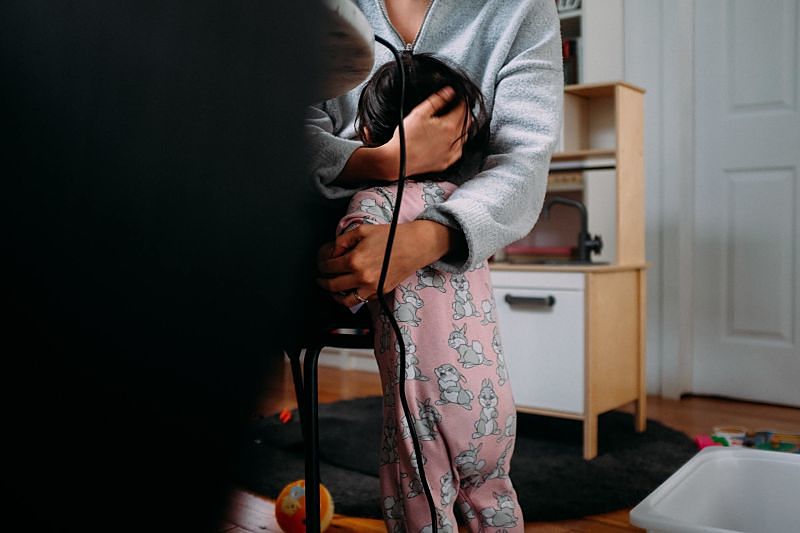
For some, working from home is nothing new, whereas others may have to make big changes to their daily lives when home suddenly becomes ‘the office’. Whichever camp you’re in, remote working comes with its own unique set of challenges to overcome, especially when you add your children into the mix. Successfully working from home with children is possible, and we have shared some top tips for home working harmony.
With technology continuing to evolve, it’s no surprise that workers have more flexibility than ever to clock in whenever and wherever they’d like. In fact, International Workforce Group (IWG) revealed, as part of their 2019 Global Workforce Survey, that 84% of UK businesses offer flexible workspace options as part of their benefits package.
The allure of remote working lies in the promise of achieving the coveted work-life balance, particularly for those with a young family to consider. However, what happens when those two worlds are forced to collide? When the kids are out of school but you’re still very much in work mode, you can feel like you’re being pulled in hundreds of different directions. How can you possibly care for and entertain your little ones whilst juggling deadlines, video conferences and targets at the same time?
While it may sound like an impossible feat, it can be done! It will take some compromise, a lot of planning and a little imagination, but there are ways to strike the balance between being mum or dad and a productive employee. Below, we’ve shared six helpful tips for parents working from home with children.
1. Prepare… and then prepare some more
When you start your working day in the office, it’s likely that you’ll make sure your day is planned out before you get started, allowing you to make the most of your time. So, getting prepared for the working day, or even week, ahead with your kids is essential when working from home.
How you do this is up to you; some people work better with a strict regimen, in which case you can plan out the day’s activities for your little ones, deciding what time each activity will take place. You can even display the schedule for all in your home to see, so everyone knows what’s next on the agenda for the day.
For others, a more relaxed approach works best and that’s perfectly fine, too. In this case, having a list of activities, and all the tools and equipment they need, ready and waiting can make the day flow more smoothly. Either way, it’s wise to plan a mix of activities that require you to be hands on and some that the children can get on with while you work.
Having a plan will let you figure out your work schedule, too. For instance, if you have an important call or virtual meeting planned, this might be the perfect time for your children to play in the garden or take their nap. It’s all about being flexible and making the most of moments when the children are busy or distracted whenever you can to make it work for you.
Top tip: Don’t forget to have some ‘Plan B’ activities up your sleeve! Outdoor activities can easily be rained off and plans can change quickly, so be ready to switch things up at short notice.
2. Set out boundaries and rules
School has rules, home should, too. Make sure your little ones understand that mummy or daddy is working and what this means for them. Otherwise, you run the risk of them thinking they’ve gained a new playmate to spend the day with! Setting out boundaries and rules can make this transition easier for the whole family.
Ensure that you have your own workspace, if possible, whether that’s a home office or simply the dining table. Having a dedicated area creates a space that is simply for work and helps you to focus (even if quiet time is in short supply). Every home and family is different, so having a separate space isn’t an option for everyone.
In any case, focus on having a system whereby the kids know when you are not to be disturbed. This way, your children can really get used to the idea that you’re working and that you can’t be there all day to entertain them. It could be something as simple as “When my office door is closed, that means mummy/daddy needs you to be very quiet.”
3. Communication, communication, communication
It’s easy to feel overwhelmed at the prospect of becoming parent, teacher and children’s entertainer, all on top of doing your job. So, communication can be a vital lifeline. If you’re in a two-parent household, talk to your partner regularly. You can organise how you will split your time to look after the children between you. Your partner can also be there to support you and listen to any challenges you may have encountered throughout the day.
Don’t forget to speak to friends and family members, too. They might be able to share some ideas with you that could help you keep the little ones busy while you work. In addition to this, there are so many online parent forums out there; perhaps seek tips and advice from people who have already mastered the art of working from home with children.
Communication with your employer and colleagues is essential. Let your manager know that your hours may be a little topsy-turvy while the children are at home, so they understand why you might be sending emails at 7.30am. If your kids will be around while you’re making calls or talking via video, let your colleagues know that it may be a little noisier than usual or that there may be an unexpected guest popping up on their screens. This sets everyone’s expectations and ensures your manager understands and can accommodate the situation.
4. Make sure everyone stays active
Your kids are used to zooming around the playground a few times a day, plus P.E. sessions on top of this. They’ve got a lot of energy to burn. At home, there isn’t always the same opportunities for them to stay active. Factoring in daily exercise for them not only keeps them entertained but is a great way for them to expend any excess energy, keeping distractions (and tantrums) to a minimum while you work.
Your activity levels are also important. Remember, you’re allowed some time for you, too! If you can, getting out for a run, walk or doing exercise at home can do wonders for your focus, stress levels and overall health. It’s a great way to reset after a hectic day.
5. Boredom is OK
At school, children are mentally stimulated for a large portion of the day. At home, this just isn’t achievable every day of the week. So, yes, there will be times when you hear the dreaded “I’m bored!”. However, do not see this as a failure, boredom is OK.
Boredom gives your kids a great opportunity to learn how they can entertain themselves and each other. Their imaginations will get to work and they’ll soon find ways to stay occupied; just be sure to keep an eye on what they’re up to. Boredom may mean more screen time or letting them take turns to decide what to do next, but don’t always see it as a bad thing. You’re doing your best!
6. Enjoy quality time
While working from home with children can be a test of your patience, creativity and ability to multitask, it also presents you with a valuable opportunity to spend more quality time with your little ones.
So, make sure that you set out time where you switch off from work and spend time with your family and be present. Play, talk and laugh together. After all, as challenging as being a parent can be, it’s twice as rewarding. Plus, they won’t be little forever – enjoy it!
Our Senior Marketing Manager, Libbi Martin, has been working from home with her 10-year-old son for two weeks. She’s shared some valuable insights, saying:
“Having to work unexpectedly from home for the past month has been a little overwhelming. I naively thought it would be a piece of cake, I work, my child works, and the world carries on as normal. That was not the case. The home setting is very different to a school environment with lots of extra distractions.
I have found the key is to create a routine, a timetable and boundaries, that way we both know where we are up to. There will be good days and bad days where you are the villain – plus, lots of tears… theirs and yours. The best bit of working from home is that you both gain valuable time together and a rare insight into each other’s daily school and work routine.”
All in all, working from home with children may not always be easy but it is achievable. Communication, planning and compromise will all play a huge part in making it happen – stick with it and it will all be worth it.


